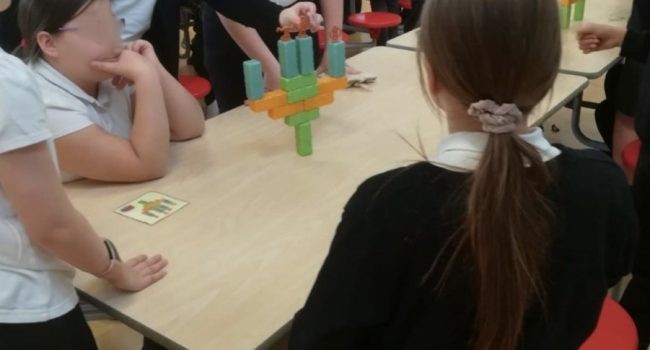At Broom Barns, our maths curriculum has been designed with the intention to develop the children’s interest and love for mathematics and to inspire and instil a thirst for knowledge. We aim to develop lively, enquiring minds encouraging pupils to become self-motivated, confident and capable in order to solve problems that will become an integral part of their future.
The National Curriculum for maths aims to ensure that all pupils:
- Become fluent in the fundamentals of mathematics, including through varied and frequent practice with increasingly complex problems over time, so that pupils have conceptual understanding and are able to recall and apply knowledge rapidly and accurately to problems
- Reason mathematically by following a line of enquiry, conjecturing relationships and generalisation, and developing an argument, justification or proof using mathematical language
- Can solve problems by applying their mathematics to a variety of routine and non-routine problems with increasing sophistication, including breaking down problems into a series of simpler steps and persevering in seeking solutions
Foundation Stage
The programme of study for the Foundation stage is set out in the EYFS Framework.
Key Stage 1
The principal focus of maths teaching in Key Stage 1 is to ensure that pupils develop confidence and mental fluency with whole numbers, counting and place value. This should involve working with numerals, words and the four operations, including with practical resources.
At this stage pupils should develop their ability to recognise, describe, draw, compare and sort different shapes and use the related vocabulary. Teaching should also involve using a range of measures. By the end of year 2, pupils should know the number bonds to 20 and be precise in using place value.
Lower Key Stage 2
The principal focus of maths teaching in lower Key Stage 2 is to ensure that pupils become increasingly fluent with whole numbers and the four operations, including number facts and the concept of place value. This should ensure that pupils develop efficient written and mental methods and perform calculations accurately with increasingly large whole numbers. At this stage, pupils should develop their ability to solve a range of problems, including with simple fractions and decimal place value. Teaching should ensure that pupils draw with increasing accuracy and develop mathematical reasoning so they can analyse shapes and their properties and confidently describe relationships between them. By the end of year 4, pupils should have memorised their multiplication tables up to and including the 12 multiplication table.
Upper Key Stage 2
The principal focus of mathematics teaching in upper Key Stage 2 is to ensure that pupils extend their understanding of the number system and place value to include larger integers. This should develop the connections that pupil make between multiplication and division with fractions, decimals, percentages and ratio. At this stage, pupils should develop their ability to solve a wider range of problems, including increasingly complex properties of numbers and arithmetic, and problems demanding efficient written and mental methods of calculation. With this foundation in arithmetic, pupils are introduced to the language of algebra as a means for solving a variety of problems. Teaching in geometry and measures should consolidate and extend knowledge developed in number in number. By the end of year 6, pupils should be fluent in written methods for all four operations, including long multiplication and division, and in working with fractions, decimals and percentages.
Catch Up Program
The Maths subject leader and class teachers have worked together to identify children’s gaps in knowledge and have prioritised the teaching of missed content that they will require in order to allow future learning to stick.
- Curriculum adjustments have been informed by: reviewing curriculum content covered over the past 18 months in maths.
- Identified high value learning needing to be taught, for progression in maths.
- rigorous formative assessments, through questioning, discussion and low stakes tests to establish what pupils do know and do not know.

